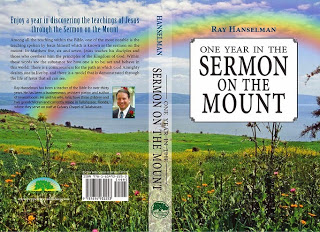Matthew the apostle shared how Jesus, “began to say unto the multitudes concerning John, What went you out into the wilderness to see? A reed shaken with the wind? But what went you out for to see? A man clothed in soft raiment? behold, they that wear soft clothing are in kings' houses.” and in chapter eleven and verse nine of his book, Matthew shared how Jesus asked the multitudes if they saw John the Baptist as, “a prophet” where we read:
But what went you out for to see? A prophet? yes, I say unto you, and more than a prophet.
The verse reads, “But what went you out for to see? A prophet?” Matthew began with the word, “but” which means “nevertheless, moreover and” “what went you out” or “what did the multitude of people arise and go out” “to see” which means “to behold, observe, learn by looking, contemplate and perceive”? “A prophet” which refers to “one who was moved by the Spirit of God and hence his organ or spokesman and solemnly declares to men what he has received by inspiration, especially concerning future events, and in particular such as relate to the cause and kingdom of God and to human salvation”? Matthew shared how Jesus further questioned the crowd as to whether they went to behold John the Baptist as a “prophet”.
The verse continues, “yes, I say unto you, and more than a prophet.” Matthew added the word, “yes” which means “verily, truly, assuredly and even so”, “I say” or “Jesus utters, declares and proclaims” “unto you” which means “to the multitude”, “and more” or “and exceeding some number or measure or rank or need” “than a prophet” which means “compared to one who was moved by the Spirit of God and hence his organ or spokesman and solemnly declares to men what he has received by inspiration, especially concerning future events, and in particular such as relate to the cause and kingdom of God and to human salvation”. Matthew shared how Jesus confirmed to the multitude that John the Baptist was a “prophet” and greater than the “prophets” they knew of previously.
When we meditate upon Matthew's words in this verse, we see how Jesus elevated the role of His forerunner John the Baptist. The people may have thought of John the Baptist as a “prophet”, but Jesus shared how John was much greater than a “prophet”. God desires to have a loving relationship with every person, and He planned for John the Baptist to lead the way for Jesus to be known as the Christ or Messiah. Jesus is the “Savior of the World”, and those who are wise shall consider the substantial role John the Baptist had in His coming.
Next time Matthew shares how Jesus quoted the scripture as He referred to John the Baptist, “Behold, I send my messenger before your face”, so read ahead, and we shall join together then.
Until
tomorrow…there is more…
Look for the daily devotional book
“Equipped for Battle – From Generation to Generation”, the
marriage book “So, You Want to Be Married”, “One Year in the
Sermon on the Mount” and the new poetry book "Random Mushrooms
Volumes I and II" and the new novel "Elizabeth County"
in all major bookstore sites, http://www.amazon.com
; http://www.barnesandnobles.com
; download to e-books, and find it locally at
www.mrzlc.com/bookstore.



































